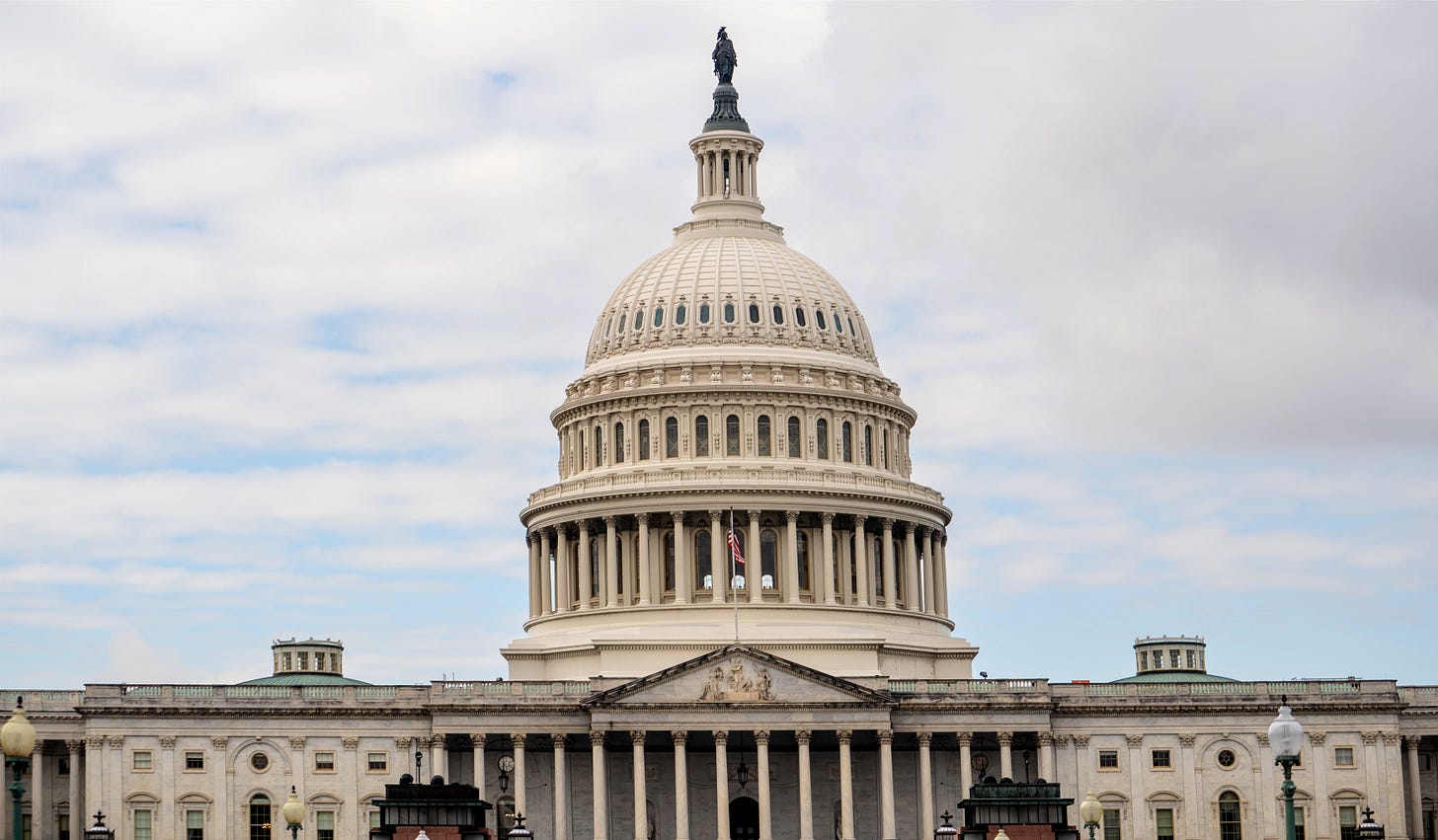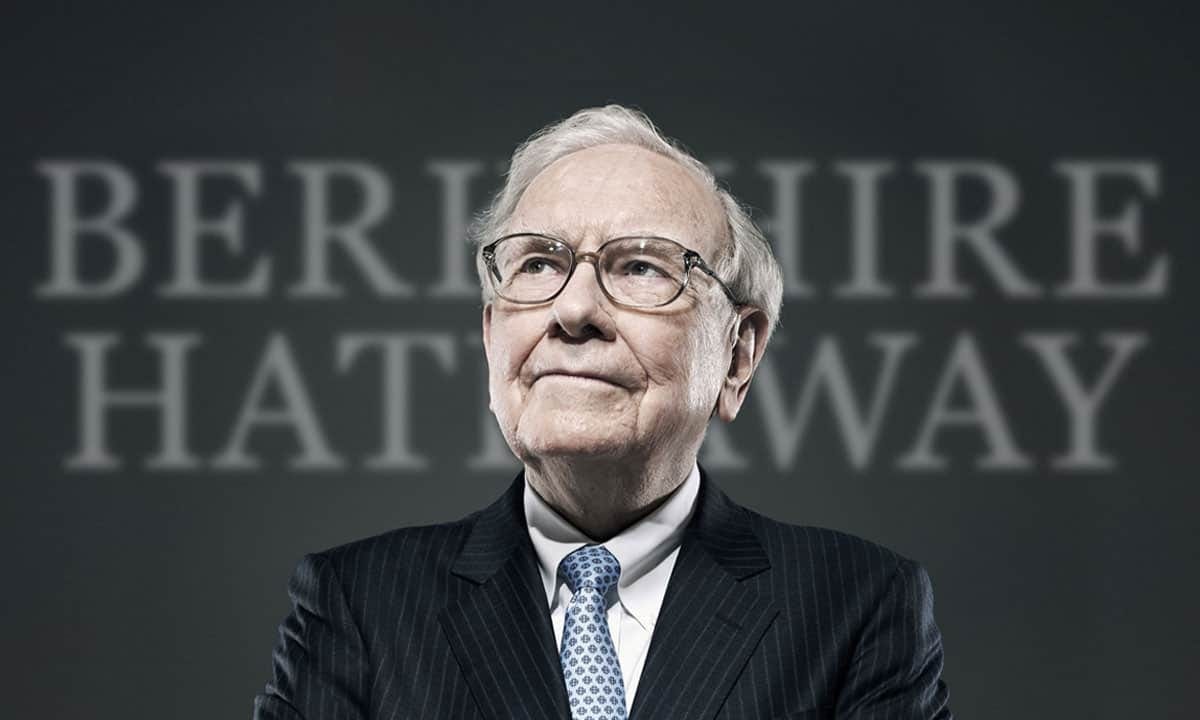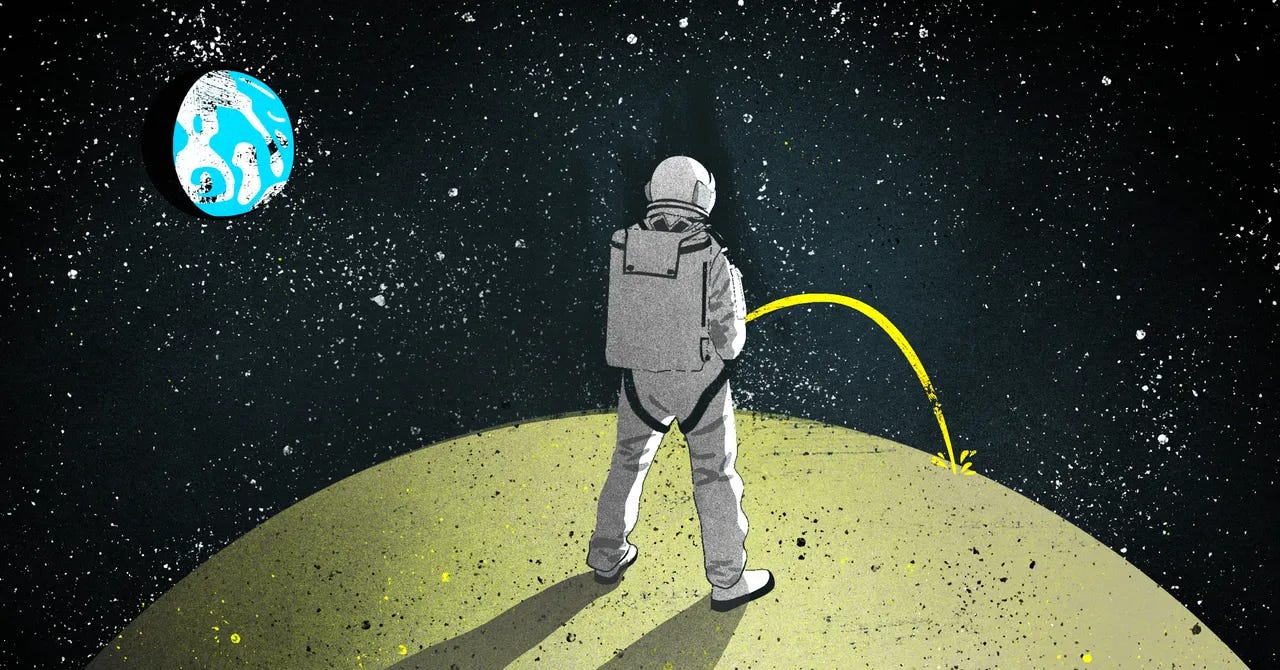Good morning, it’s Tuesday, November 11th. In today’s news, the rise of Nick Fuentes is starting a bar fight for the West, it is our duty to uphold Canada’s remembrance day legacy, Canadian intelligence tried to recruit a political commentator as a secret “asset,” the longest government shutdown in US history comes to an end, and much more.
First time reading the daily blend? Sign up here.
Nick Fuentes and the Bar Fight for the West
Nick Fuentes didn’t appear out of nowhere. He’s the end product of a decade that told a generation of young men that their very being was a problem to be solved. Every classroom, every film, and every corporate memo carried the same message: if you’re a straight white man, you’re the cause of society’s ills. You’re an oppressor by birth. Your success is theft. You should feel shame, step aside, and be grateful for it.
Now picture being a teenage boy through those years. You watch as your future is traded away under the banner of “equity.” Jobs, scholarships, and public praise are handed out based on identity, while you’re told to sit still and be grateful. The deal once made with men—work hard to earn respect—was torn up. In its place came scorn. Men have always been viewed as expendable, however, they were at least respected for carrying the load. But when they stripped away basic dignity, the resentment started to boil.
Moderate voices tried to speak for fairness. Ben Shapiro, Jordan Peterson, Charlie Kirk—they argued for equal treatment, free speech, individual worth. But while they debated, the woke ideologues built machinery: HR departments enforcing moral conformity, universities purging dissent, governments writing hate speech laws to silence opposition.
By the time the lockdowns came, these young men were trapped indoors, cut off from their peers, left to find belonging online. They saw their heroes stripped of platforms, their questions banned, their voices treated as threats. When every fair complaint from a moderate was branded as hate, many stopped trying to prove their innocence. They thought, if I’m going to be damned either way, I might as well deserve it.
Then came the moment that shattered illusion. Kirk’s assassination was a pivot point. For years, moderates believed conversation could still bridge the divide. But when a man known for debate and restraint was gunned down—and a significant portion of society celebrated it—a dark realization set in. These people weren’t interested in dialogue; they were celebrating blood.
That’s when many young men decided: If you can murder someone for trying to talk, then there’s nothing left to talk about. The splinter within the right became a break. Moderates still hope reason can win; others now want revenge. Fuentes rose in that void—not as a mastermind, but as a symbol of what happens when shame and exclusion curdle into fury.
Think of it like a bar. One loud drunk starts mouthing off, putting drinks on other people’s tabs, and puffing their chest. Most people walk away. But if it keeps going long enough, someone throws a punch. That’s where we are now—standing between the shove and the swing.
Carrying the Torch: It Is Our Duty to Uphold Canada’s Remembrance Day Legacy
As Canada marks the 80th Remembrance Day since the end of the Second World War, we stand at a solemn crossroads. This may be one of the final commemorations where living veterans of that war are present. When their voices fall silent, the torch of remembrance will pass entirely to us. Whether that flame flickers or endures will determine the strength of Canada’s national character in the years ahead.
Today, fewer than 9,000 veterans of the Second World War and Korean War remain alive in Canada. Once a familiar sight in classrooms and parades, their numbers are fading fast—and with them, the firsthand memories of the wars that shaped modern Canada. These were men and women who helped define our country’s values: courage, service, sacrifice, and unity of purpose.
At the same time, Canada’s collective memory appears to be fraying. A 2024 Ipsos poll found that fewer than one in five Canadians could pass a basic quiz on national history. It’s not just trivia we’re losing—it’s the connective tissue of our shared identity.
And yet, there’s hope. Despite this erosion of knowledge, the spirit of remembrance remains strong. Attendance at Remembrance Day ceremonies has risen, and 87 percent of Canadians believe we should be doing more to educate young people about our military history. The act of wearing a poppy—something 58 percent still do—isn’t mere tradition; it’s a quiet declaration that memory still matters.
But memory requires more than ceremony—it requires education. Our schools are failing to meet that challenge. A 2024 Fraser Institute study revealed that provinces like Ontario and British Columbia barely teach Canadian history in the early grades, and when they do, it’s often through a narrow lens focused on past injustices rather than the triumphs that built this nation. Understanding the darker chapters is essential, but if we strip out the courage at Vimy Ridge or the sacrifice at Juno Beach, we leave young Canadians with a hollow story.
To remember is to honour. To teach is to preserve. If we want our children to understand why generations fought for this country—to believe in the values that define it—then remembrance must be more than a moment of silence once a year. It must be a living part of who we are.
Canada’s veterans gave us freedom, stability, and a national identity rooted in perseverance and decency. The least we can do is ensure their legacy doesn’t fade into footnotes. Because when we forget where we came from, we risk losing sight of who we are. 🌺
Canadian Intelligence Tried to Recruit Political Commentator as Secret “Asset”
In a democratic country, intelligence agents should not be showing up at the homes of political commentators—let alone trying to recruit them under threat of ruin. Yet that is exactly what Canadian commentator Lauren Southern says happened to her. And the audio recordings she released makes it hard to dismiss.
According to Southern, agents appeared at her door uninvited. When she refused to cooperate, they began calling her from blocked numbers, even contacting her gym. They told her they would not “go away” unless she built “a relationship” with them. They said the courts wouldn’t care if she was guilty or not, that “someone had to take the fall,” and that she could ensure it wasn’t her. They insisted it wasn’t a threat—but the message was plain enough.
In the recording, the agent’s tone is calm, almost caring. He praises her poise, calls her “amazing,” then pivots to fear. “You’re a mother,” he says. “You want to see your child grow up. I don’t want that interfered with.” When she challenges him, he retreats behind empathy—“I’m really trying to help you”—before hinting that the “legal ball” could soon roll beyond control.
He frames cooperation as “self-preservation.” He suggests that others in her circle have already talked, that she’s the lone holdout. He promises that “no one will ever know,” that she’ll remain “anonymous,” and that they can “smooth things over” with authorities. The pattern is textbook psychological pressure: isolation, fear, reassurance, and control.
Southern says she endured months of this manipulation before realizing what it was—a campaign to turn her into an informant under the guise of protection. None of the threats ever came true. She was never charged, never barred from travel. But the point, it seems, wasn’t prosecution. It was persuasion.
If her account is accurate, it paints a bleak picture of Canada’s political climate—one where intelligence services have grown comfortable crossing lines once thought unthinkable. The idea that a government could lean on journalists or commentators in this way should alarm every citizen, no matter their views.
Because when the state begins to confuse dissent with danger, and tries to buy silence with fear, freedom isn’t taken in a single stroke—it’s eroded, one quiet conversation at a time. Source.
After 40 Days, the Longest Government Shutdown in US History Comes to an End
Democrats and Republicans reached a deal to reopen the government, ending the longest shutdown in US history. The Senate advanced the bill 60–40, with a handful of Democrats joining Republicans to reach the threshold.
The agreement funds the government through Jan. 30, 2026, and includes three full-year appropriations bills covering agriculture, veterans’ affairs, military construction, the FDA, and the legislative branch. SNAP and WIC programs are funded through the fiscal year, and federal workers affected by the shutdown will receive back pay.
A vote on extending Affordable Care Act subsidies is scheduled for December, though it is unlikely to pass, representing a major concession by Democrats. Reactions were mixed: Republicans hailed the deal as an end to a “shameful” shutdown, while many Democrats criticized it for failing to address the health care crisis. More
The Canadian Military Will Rely On an Army of Public Servants to Boost Its Ranks by 300,000
The Canadian Forces is planning to boost its ranks dramatically, aiming to expand the Supplementary Reserve from roughly 4,400 to 300,000 personnel. Federal and provincial public servants would be offered voluntary one-week training in firearms, truck driving, and drone operations, then participate in annual refresher courses.
The initiative, part of a broader Defence Mobilization Plan, would prioritize volunteers and ease entry standards, while reservists would receive medical coverage and back pay but no pension credit. A “tiger team” is coordinating the plan, consulting with government agencies, the Privy Council Office, and allies like Finland to model readiness for national emergencies and potential conflicts with major powers. More
Leaked Emails Reveal Jeffrey Epstein Helped Israel Build a Surveillance State in Côte d’Ivoire - Emails obtained by Drop Site News expose Jeffrey Epstein’s secret role in brokering talks between Israel and Côte d’Ivoire that led to a 2014 pact; a deal that opened the door for Israeli intelligence-linked firms to flood the West African nation with surveillance technology. More
Beijing Restricts Exports of Additional Fentanyl Precursors - The Chinese regime is the main source of illicit fentanyl flooding Canada and the US, contributing to nearly 100,000 deaths annually. More
Israel Has Accused the Lebanese Army of Failing to Prevent Hezbollah From Rearming - In response, Israel threatened to continue stepped-up strikes, saying the terror group has smuggled hundreds of rockets and recruited thousands of new members. More
Former French President Nicolas Sarkozy Has Already Been Released From Prison Pending Appeal - More
Russia Employs Convicted Killers and Violent Offenders in Ukraine in Exchange for Early Prison Release - More
Riot in Ecuador Prison Kills 31 Amid Gunfire, Explosions, and Hangings - More
Warren Buffett to “Go Quiet” After Stepping Down as Berkshire Hathaway CEO
Warren Buffett, 95, announced in his annual shareholder letter that he will step down as CEO of Berkshire Hathaway at the end of 2025 and will no longer speak at annual meetings or write his yearly letter. He is accelerating the transfer of his shares to family foundations, including the Susan Thompson Buffett Foundation and the Howard G. Buffett Foundation.
Buffett praised successor Greg Abel, vice chairman of non-insurance operations, calling him a “great manager” and expressing confidence in his leadership. He also highlighted his good health, praised the US economic system, and encouraged shareholders to “choose your heroes very carefully and then emulate them.”
Since the start of the year, Berkshire Hathaway’s shares have risen over 10% to $498.65, giving the company a market cap of $1.08 trillion. More
Brookfield Asset Management Reports Record US$30 Billion Capital Raise - This comes after Brookfield completed $23 billion in investments (its largest ever), including a partnership with Cameco and the US government on nuclear projects. More
Canada Adds 67,000 Jobs in October, Extending Modest Growth Into Second Month - More
PayPal Brings Its Buy Now Pay Later Service to Canada In Time for the Holidays - Ccnsumers will be able to pay for some purchases between $30 and $1,500 in four interest-free instalments over six weeks. More
Europe Wants to Make Space Food Out of Thin Air and Astronaut Pee
The European Space Agency’s HOBI-WAN project is exploring a revolutionary way to feed astronauts on long missions to the Moon and Mars: turning microbes, air, electricity—and even urine—into a nutritious powdered protein called Solein. Developed by Finnish company Solar Foods, Solein could be produced entirely in space, eliminating the need for costly resupply missions from Earth.
To make it work in microgravity, microbes will use urea from astronaut urine as a nitrogen source instead of ammonia used on Earth, tackling the unique challenges of gas fermentation in space. Over the next eight months, ESA and Solar Foods will refine the process on the ground before testing it aboard the ISS, aiming to create a truly self-sufficient food system for deep-space exploration. More
‘The Universe Will Just Get Colder and Deader From Now On’: Euclid Telescope Confirms Star Formation Has Already Peaked in the Cosmos - More
IOC: Transgender Women to Be Banned From All Female Olympic Events
The International Olympic Committee plans to announce a ban on transgender women competing in female events early next year, following a science-based review showing that physical advantages from being born male persist even after testosterone reduction. The review, presented by Dr. Jane Thornton, highlighted advantages that remain despite hormone treatment, prompting strong support from IOC members.
New IOC president Kirsty Coventry emphasized protecting the female category while consulting international federations and using a scientific approach. The policy will be in place before the 2028 Los Angeles Olympics and will likely also cover athletes with differences of sexual development (DSD). More
AI Singer Xania Monet Debuts on the Billboard Chart and Secures a $3 Million Record Deal - More
NBA Legend Lenny Wilkens Dies at the Age of 88 - Lenny Wilkens was a three-time inductee into the Basketball Hall of Fame who was enshrined as both a player and a coach. More
NY Giants Fire Brian Daboll, 2022 NFL Coach of the Year, Following 2-8 Injury-Plagued Start - More
Nightmare Fuel: The World’s Largest Spider Web, Discovered In a Cave Close to the Greek-Albanian Border, Is Home to Over 111,000 Spiders
A Unique Antibody from Camels and Alpacas Could Be Used to Treat Alzheimer’s
On This Day in 1918, the Armistice between the Allies and Germany came into effect, officially ending hostilities in World War I. Fighting ceased at 11 am, the “eleventh hour of the eleventh day of the eleventh month,” a moment that has since become a lasting symbol of remembrance for the millions who served and died in the Great War.



















All wars are bankers wars, elitist wars. WW1/2 are not exceptions.
Continuing to celebrate war is admitting that the globalist elites are our masters. Taking a pass.
As Carney government has indicated plans to add public servants to boost the ranks of the Canadian military- I'll point out that Hitler did the exact same thing! He armed public servants, effectively integrating them into the Nazi regime's structure. I find this alarming, but is that bit of news a ruse, another fear tactic?